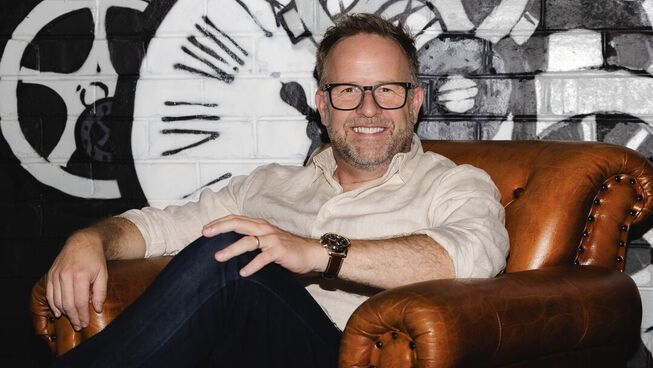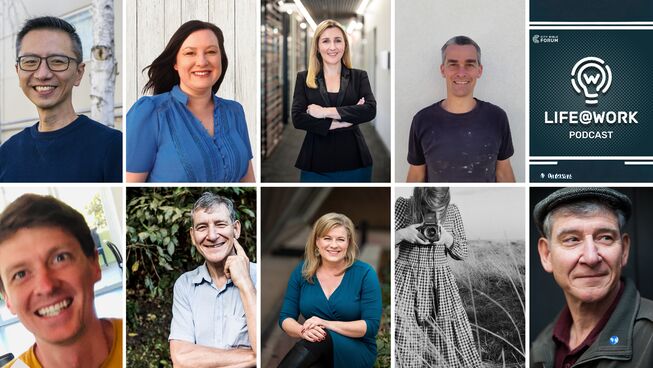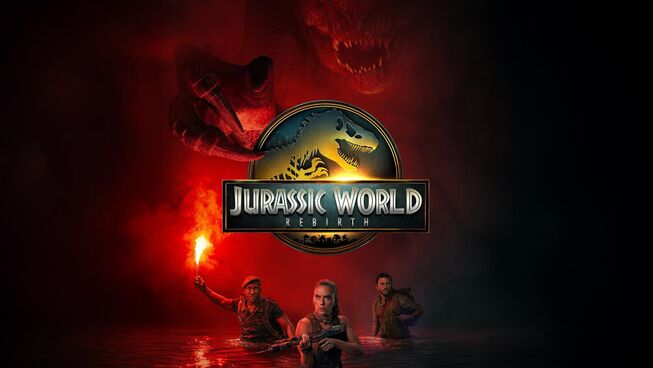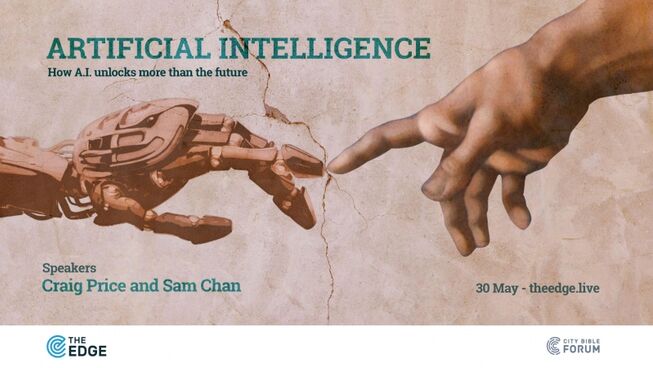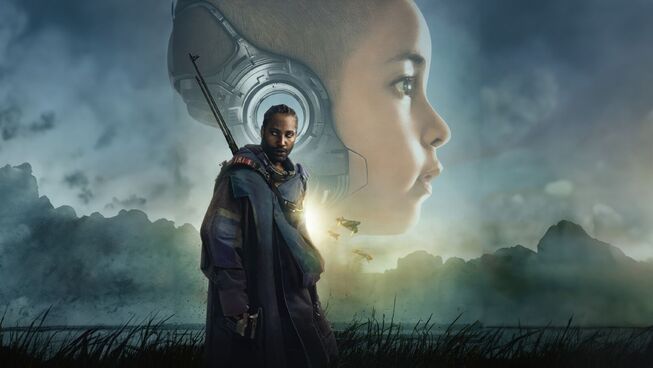
⭐️ ⭐️ (out of 5)
Artificial Intelligence (AI) is a term that has polarised the world. Many want to embrace its capabilities, while others fear the influence AI is having on our lives. Writer/director Chris Weitz (About a Boy) taps into both sides of this discussion with his collaboration with Blumhouse Productions. He shows the implications of the latest digital family assistant, AIA, which infiltrates every aspect of the Pike Family for better or worse.
Curtis Pike (John Cho) is a marketing executive who is allowed to work with a fledgling tech company that wants to see AIA in every person’s home. Before taking on the account, he is asked to do an introductory run of this artificial intelligence in his family’s home. Initially, Meredith Pike (Katherine Waterston) wasn’t interested in having this surveillance program around her family until AIA won her over. The intuitive device finds different ways of assisting with every Pike family member's life, except there is a dark side to her purposes. As some things turn out for the better for life with AIA in it, there are other issues that show that her intentions may have a sinister undercurrent that may be hard to avoid.
Some elements of AfrAId contain the earmarks of a Blumhouse production, such as a few jumpscares and unexpected twists. Yet, Chris Weitz’s film is less horror and a more cautionary tale of the evils of allowing AI into our homes. This is a warning worth engaging with in this modern era, and the set-up is promising as each of the Pike family is appealing, and audiences will want them to prevail. Along with a strong family as the protagonists, Weitz introduced potentially strong adversaries. Still, as the film unfolds, the human factor takes on less significance and the technological side of the story takes the reins.
Just as the initial narration makes the viewer aware of the pace at which our world is changing with the introduction of artificial intelligence, this film takes off, and it is impossible to keep up. Different factors could contribute to this production's breakneck speed. It is difficult to know what happened as events occur so quickly that you wonder how we got there. Was this due to budgetary issues, or was this script so poorly developed that it caused this film to fall over on itself? Hard to know, as the story progresses so rapidly that it is difficult to discern what is reality and what is AI-generated. Especially when you get to the less-than-satisfying conclusion that fails to support the messaging of the screenplay unless that is what AIA wanted all along.
AfrAId had the right intentions and the potential to get this warning out to the world about artificial intelligence, but the execution fails to support the underpinnings of this cautionary tale.
Reel Dialogue: How will artificial Intelligence affect the future of humanity?
Artificial intelligence used to belong to the realm of science fiction but is now already changing the way we shop, work and live. Should we embrace this or be concerned with the growing influence of AI technologies? We ponder the future of humanity and where technology could take us. Be sure to listen to this interview of John Lennox on the topic.
Professor John Lennox: John is Emeritus Professor of Mathematics at Oxford University and is an internationally renowned author and speaker on the interface of science, philosophy and religion, including his latest book, 2084 which explores artificial intelligence and the future of humanity.
Bigger/Deeper Questions episode - How will artificial Intelligence affect the future of humanity?

